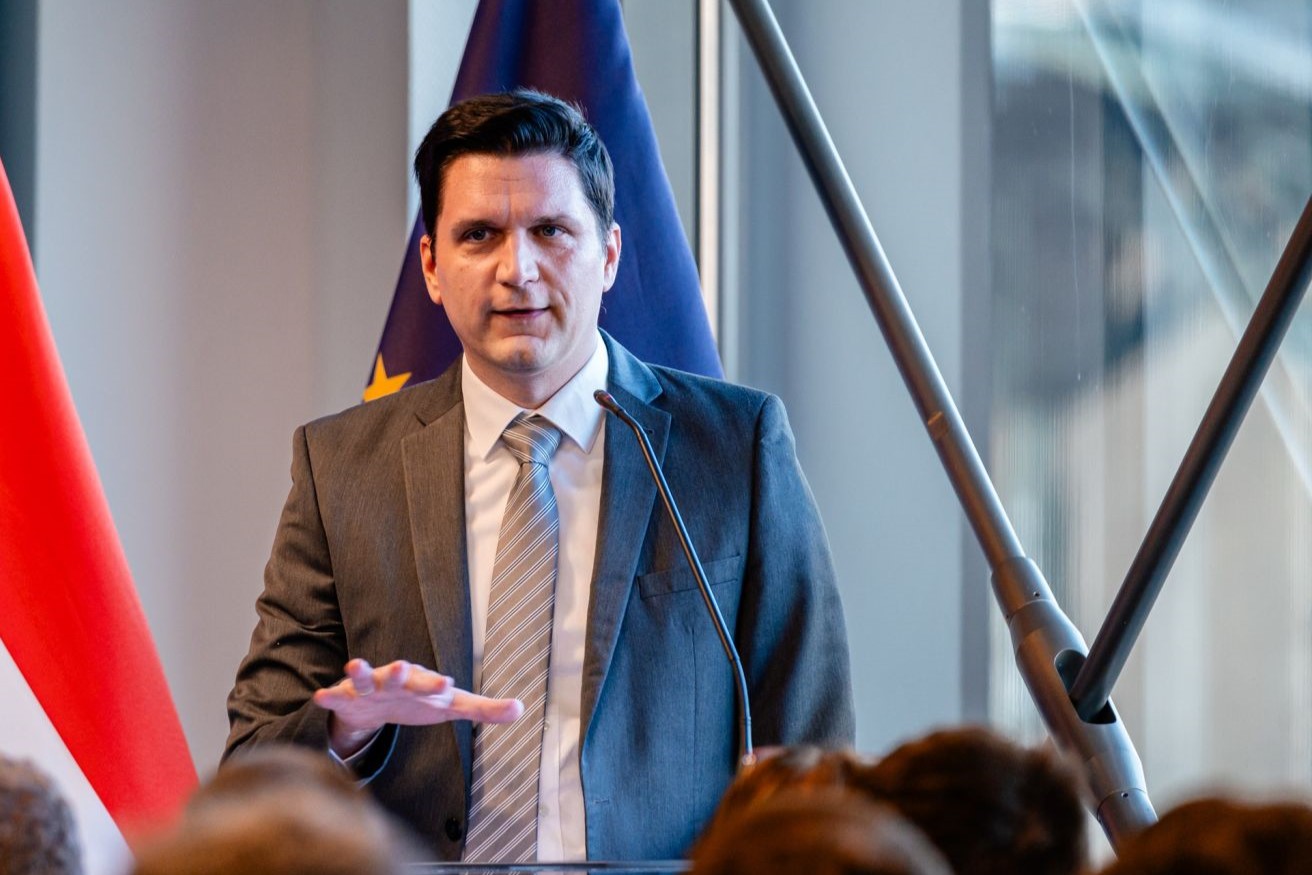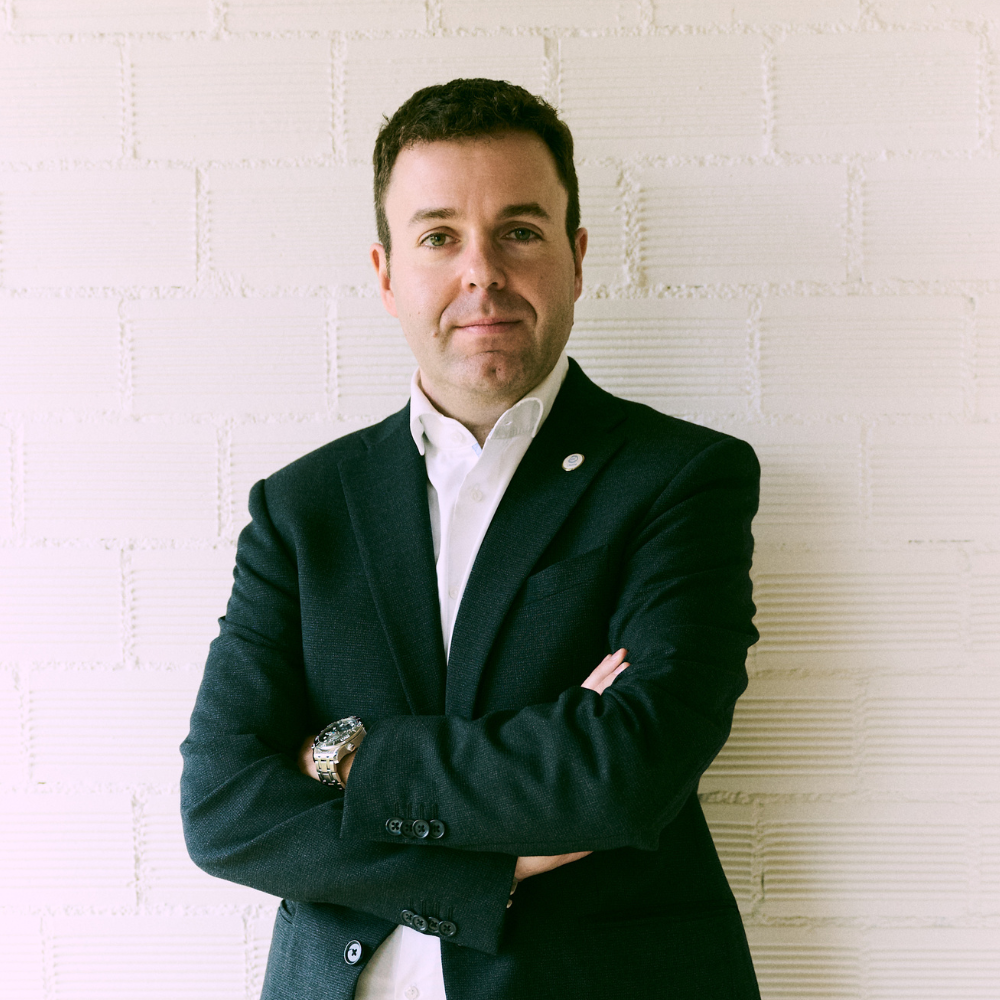Stakeholder
EIT’s mission for Europe: sustainable growth and innovation
An integral part of Horizon Europe, the European Union’s oldest and largest programme for research and innovation – the European Institute of Innovation & Technology (EIT) has worked on boosting the EU’s competitiveness and growth since its inception in 2008.
“The main problem that EIT is trying to tackle is the structural fragmentation of Europe’s innovation landscape”, says Adam Rottenbacher, head of operations in charge of knowledge and innovation communities at EIT. “
The EU and its 27 member states is a huge territory with a population of 450 million people, more than the US – on paper it’s a single market with the necessary freedom of movement of goods and services, but still there is too much fragmentation and too little collaboration across the borders.”
The EIT’s mission is very clear; contributing to Europe’s economic growth and competitiveness by reinforcing the innovation capacities of the European Union and its member states. It aims to achieve this through its nine Knowledge and Innovation Communities (KIC), each focusing on one key sector, ranging from climate to digital to raw materials.
“The KICs are EIT’s operational arms”, Rottenbacher explains, “they are tightly knit communities with a long-term strategy and a clear agenda to tackle their relevant societal challenges.”

Knowledge and innovation communities
These Knowledge and Innovation Communities are large-scale pan-European public private partnerships of universities, research centres, businesses etc, set up and nurtured by EIT.
Key is their long-term strategy and their presence on the ground, which differentiates the KICs from other EU-level innovation instruments. Each KIC has offices all over Europe and develops a very deep understanding of the challenges and opportunities in their field.
Rottenbacher illustrates the unique value of how a KIC functions through an example: “Let’s say a university from Poland, a research centre from Portugal and a company from Germany are brought together by the KIC. Each actor has complementary knowledge, experience and strengths. They get together and develop a technology on the basis of which they can successfully place a new product or service on the market, sharing the revenue – there is economic value created, but also societal value.”
A crucial aspect of the KIC model is that, over time, the EIT decreases its funding of the KICs and requires them to become self-sustaining. From their inception onwards each KIC must implement a financial sustainability strategy, as well as develop concrete measures to reach financial independence from the EIT after a period of 15 years.
“EIT is not about handing out subsidies to these KICs with no questions asked”, Rottenbacher says, “we are about having skin in the game, and a growth mindset.”
“Coincidentally, 2024 is the year our first wave of KICs have reached the 15-year mark,” Rottenbacher continues, “and I’m very proud to say that all three of them have reached financial sustainability, and are capable of continuing their activities.”
KICs have several avenues to generate revenue. They can benefit from revenues when an innovation project, orchestrated by the KIC, results in a successful commercialisation of a new product. When supporting a new start-up, KICs often take a minority stake in the company – quite often these start-ups become successful, this way also generating revenue for the KIC. In addition, certain KICs have built up successful masters programmes which generate revenue too. “They have been very successful at building programmes that are sought after in the market and students are willing to pay for”, Rottenbacher explains.
EIT Digital
EIT Digital is one of those first three KICs to be set up by EIT in 2010, and has become an authority in the field of digital innovation in Europe, having supported and launched many successful businesses over the last 15 years.
Federico Menna is the CEO of EIT Digital, and when asked about the biggest challenge facing European innovation, he has a clear answer: “The challenge for innovation in Europe is always the same – we struggle to convert the great scientists and researchers we have into market success.”
Determined to tackle this discrepancy between knowledge and successful businesses, EIT Digital has a number of different programmes aimed at bringing new technology to the market.
Future entrepreneurs with innovative ideas receive training, mentorship and investment in order to create a start-up and bring a product to the market. Young, fast-growing companies get the opportunity to collaborate with corporates and research centres, allowing them to develop a new vertical for their product. And finally, scale-ups that are already strong in one or two markets are put in contact with EIT Digital’s network of 1000 venture capitalists, and receive help raising series A funding (€2m to €20m investments).
“The first two programmes so far have brought us a portfolio of 300 companies where we have a shareholder position”, Menna explains. “All of them are in deep tech, all of them have a digital angle, but more importantly, they all solve concrete societal and economic challenges.”
On top of that, EIT Digital also offers its aforementioned masters degrees designed to combine technical skills with innovation and entrepreneurship skills. “Every year we produce about 300 students, computer scientists with a very strong knowledge and understanding of deep tech, but who are also able to understand business”, Menna says.

Supporting EU public policy
The EIT KICs play a crucial role in supporting EU public policy, and maintain strong relations with the EU Commission and the relevant Directorate Generals (DG). “The DG informs the KIC on the latest policy changes and priorities, so they can select innovation projects that address these emerging policy needs directly.” Adam Rottenbacher emphasises that this is an interaction that works both ways: “KICs are practitioners, they are the ones who work on the ground with the innovators, the companies and so on. They acquire a lot of useful experience that they can feed back to the policy makers at the EU Commission.”
“Part of our mandate is that we have to become more autonomous from the EIT, which means that we look to strengthen our link with other players - private and public”, Menna says. “In the last two years we have increased our contracts with public organisations and governments from three or four to more than 40. Many of those are with the European Commission, but we also have contracts with the Italian government, the Scottish government, with Romania, Greece, etc.”
The EIT often assists the commission by acting as an orchestrator of big policy projects, explains Rottenbacher: “doing what they do best; bringing together players from all over Europe, matchmaking, creating projects and financing them if needed.” Federico Menna concurs: “Our unique value is that we can bring the best of two worlds together – connecting the public with the private sector.”
Deep Tech Talent Initiative
A perfect example of this is the Deep Tech Talent Initiative – a pioneering programme launched by the EIT in 2022, as part of the EU Commission’s New European Innovation Agenda. The ambition of the initiative is to skill one million people in Europe in deep tech fields (ranging from AI, to biotechnology, to quantum computing, etc.) from 2022 to 2025.
“In order to reach this very ambitious aim, we launched a call to others in Europe to join us and provide their training programmes on this platform. This can be training providers, companies who are working in deep tech, etc.”, Rottenbacher explains. And things are going well: “We already have more than 900,000 pledged talents – some of these 900,000 are being trained by KICs themselves, and some by other organisations who have joined us in this quest.”
EIT Digital plays an important role in the Initiative, bringing the deep tech players to the table. “If you think of the top technical universities in Europe, most of them are our partners”, Menna states.
“Deep tech really is something where we feel Europe has something to say. Although we are lagging behind in several fields, I think Europe has the potential to grow and compete with the US and China. But we cannot win everywhere, so we have to focus on areas where Europe can excel – and I think deep tech can really become a game changer in the near future where Europe can compete.”
Unlocking Europe’s potential
Looking at the future brings us back to the big challenge European innovation currently faces – Federico Menna reiterates: “Europe has a lot of great science, a lot of great technology that is still in the labs and is still in the research centres and universities, but too often we don’t bring it to the market at all.”
However, Menna also recognises the huge potential in Europe: “To think that 15 years ago no one in Europe was really talking about innovation, there was not even a public instrument focused on innovation until the EIT and EIC (European Innovation Council) were created.”
“At this stage, we lack the market success”, Menna says. “But I think the ingredients are there, and since we work on deep tech we see that the trend is the right one, but it will take time. It’s crucial that the European Commission and the next framework programme continues to invest in innovation, and especially in deep tech.”
“We should identify some industries, some technologies, where we feel Europe should lead and focus on those,” Menna concludes. “We don’t need or want to become another US – Europe should be something different, where the values and the societal impact are combined with economic success and market growth.”
Disclaimer
This article is sponsored by a third party. All opinions in this article reflect the views of the author and not of EUobserver.Author Bio
The European Institute of Innovation & Technology is an independent EU body established in 2008 with a mission to create jobs and develop sustainable and smart growth, by finding and commercialising solutions to pressing global challenges. This article was produced in collaboration with EUobserver.